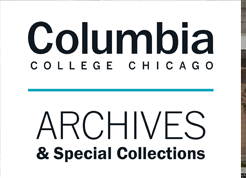Document Type
Article
Loading...
Publication Date
Spring 2009
Keywords
African National Congress, Afrikaner Broederbond, Steve Biko, Lisa Brock, Dennis Brutus, Botswana, Wilt Chamberlain, Colombia, Coalition for Illinois' Divestment from South Africa, Martin Luther King Jr., Nelson Mandela, Mennonite Church, Beyers Naude, Prexy Nesbitt, Bill Russell, Robert Gabriel Mugabe, Desmond Tutu, Jeremiah A. Wright Jr., Zimbabwe African National Union
Disciplines
Political Science | Political Theory | Race and Ethnicity | Race, Ethnicity and Post-Colonial Studies | Work, Economy and Organizations
Abstract
Mr. Redekopp describes living in Botswana between 1977 and 1980, building correspondence schools for South African refugees who fled Soweto amidst the Uprising of 1976. He describes living amongst South Africans, notably attending a memorial service for Steve Biko. He states how after returning to North America, he began participating in the anti-apartheid movement. He explains how, in 1982, once settled in Chicago, he served as minister at the First Church of the Brethren in Chicago. He details his time between1980 and 1990, participating in Sing Out Against Apartheid, protests outside the Chicago South African Consulate, and divestment efforts within the church. He explains that even in conflict, people have a moral responsibility of doing what they believe is right. He summarizes his participation as being “caught up in something bigger” and being a part of a movement.
Length: 88 minutes
Oral history interview of Orlando Redekopp by Balin Pagadala
Recommended Citation
Pagadala, Balin. "Interview with Orlando Redekopp" (Spring 2009). Oral Histories, Chicago Anti-Apartheid Collection, College Archives & Special Collections, Columbia College Chicago. http://digitalcommons.colum.edu/cadc_caam_oralhistories/25
Creative Commons License

This work is licensed under a Creative Commons Attribution-NonCommercial-No Derivative Works 4.0 International License.
Included in
Political Theory Commons, Race and Ethnicity Commons, Race, Ethnicity and Post-Colonial Studies Commons, Work, Economy and Organizations Commons



Biography and Comments
Orlando Redekopp, born in 1946, is an activist and retired pastor at the First Church of the Brethren. He was raised as a member of the Mennonite church in Winnipeg, Canada, by Ukrainian-born parents. His father was a minister, which ushered him into church activities. He enrolled in the University of Winnipeg, where he earned his BA degree in Economics and Statistics. After graduation, he taught in Colombia through a Christian service group and in Winnipeg as a part-time instructor. He then went on to work in a church-based prison ministry program for two years. Upon traveling to Botswana to build correspondence schools for South African exiles, Redekopp learned about the Apartheid regime in South Africa and continued his anti-apartheid activism after returning to the United States. Orlando Redekopp and his wife, Joan Gerig, were both active in the Chicago anti-apartheid work.
The interviewer conducted this oral history as part of his/her coursework for the Spring 2009 class, Oral History: The Art of the Interview. This interview supports the scope and content of the Chicago Anti-Apartheid Movement Collection at the College Archives & Special Collections department of Columbia College Chicago. Contact archives@colum.edu for more information and to view the collection.